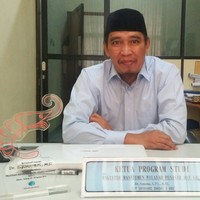Supono
Head of Master Program in Coastal and Sea Unila;
Chairman of Masyarakat Akuakultur Lampung
INDONESIA as a maritime country with two-thirds of its territory is an ocean and has extraordinary fishing resources both in biodiversity and quantity. One of the high economic value of its marine commodities is lobster (Panulirus sp), both Sand Lobster (P homarus), Pearl Lobster (P ornatus), as well as other types.
300 gr of pearl lobster is worth USD 30-40 per kg and USD 45-60 per kg for the larger types. Besides the size of consumption, the economic value of lobster seeds of Panulirus sp, which are often called baby lobsters (BL), is quite high as well.
According to the data, the price of puerulus (non-pigmented lobster seeds) is worth Rp 5,000 – Rp 10,000 per head. This price is too cheap when compared to the price in Vietnam which reaches USD 5-10 per head.
Based on the data of KKP, the potential of Indonesian lobster seed reaches billions per year. However, the result of the research shows that the level of survival rate is very small, less than 0.05%. This means, only 500 of the 1 million puerulus will become adults.
The potential of lobster seed in Lampung is big. The potential located in South Lampung, Pesawaran, and Tanggamus. It is also located on the West Coast which is part of the Fisheries Management Area of Republic Indonesia (WPPNRI) 572.
This region covers the western waters of Sumatra from the West Coast of Lampung to Aceh with the quota for catching the lobster seeds of 18,537,500 while the national quota of 139,475,000 (Directorate General of Capture Fisheries Decree No. 51/KEP-DJPT/2020). This potential will be a blessing for the community. However, it can be disastrous if it is not managed properly.
We must manage the abundance of lobster seeds in the sea to be economically useful. As one of the marine resources, lobster is a common property resource and is open to anyone, so conflicts often arise in its use. Therefore, regulation is needed in managing it.
The management of marine resources should be sustainable both ecologically and economically. Resources management that only refers to ecological sustainability will not gain economic benefits for society and the country. In contrarily, management based on economics without regard to ecology will result in overexploitation and damage to the resources.
Community-based management by involving the government as a regulator and community leaders can be used as a model of lobster management in Lampung and paying attention to the local wisdom. Lampung community culture that adheres to customs and community leaders will help create sustainable management of marine resources.
The government as a regulator avoids overlapping interests in the use of resources, while the community is involved in management. The community will feel the impact economically in increasing revenue and ecological impacts that arise.
The lobster catchers and cultivators will be fully responsible for the management. The prohibition of catching lobster seeds will harm fishermen by reducing their income and eliminating the opportunity for the country to obtain foreign exchange from this commodity.
Farmers will also be disadvantaged because of constrained supply of seeds, while the survival rate of puerulus in nature is very low. Fishermen need to catch lobster seeds on a limited scale as an effort to utilize the abundance of lobster seeds, increase the income, revive the cultivation, and increase export value. Limited capture can be arranged by determining puerulus fishing ground, the number of fishermen, the size that can be caught, the type of equipment, and the quota.
The abundance of lobster seeds has not been fully utilized yet by the lobster cultivators in Indonesia due to the limitations of the existing floating net Karamba and supporting facilities. So far, the estimation of lobster seeds that can be used is only around 10 million to 20 million per year.
One of the obstacles in developing lobster cultivation is high production costs. To produce 1 kg of sand lobster for the consumption, it needs 20 kg of the feed. The cost for feed is Rp. 200,000 (if the price is Rp. 10,000 per kg), excludes the cost of lobster seeds which will increase dramatically if the exports have begun.
The Decree of the Minister of Maritime Affairs and Fisheries (Kepmen- KP) No. 12 of 2020 concerning the Management of Lobster (Panulirus Sp), Crab (Scylla Sp), and Rajungan (Portunus Sp) in the Territory of the Republic of Indonesia certainly invites the pros and cons of several parties.
In the Ministerial Decree, there are at least some efforts from the government to accommodate the aspirations of stakeholders. In addition to paying attention to ecological sustainability, this lobster resource management can also have an economic impact on the community, especially fishermen and cultivators, and able to increase the value of exports.
There are several points in Kepmen-KP No 12 of 2020 that support the preservation of lobsters. These points including the fishermen, who can catch lobster seeds, are small fishermen using passive gear, quota, and location of catch according to the study and the obligation for farmers to release 2% of the harvest at the seed picking place.
If lobster has become one of the mainstays of the fisheries sector, we must work hard to develop lobster not only from fishing but also from the cultivation.
Involving universities and R&D institutions for the lobster hatchery in lobster research needs to be a priority. It is because in the future we cannot rely on nature. The cultivation will play an important role as a supplier of food.
“It is He, who created for you all of that which is on the earth. Then He directed Himself to the heaven, [His being above all creation], and made them seven heavens, and He is Knowing of all things. (QS 2:29).” In addition, He also commands us to manage it well for the benefit of the people.
However, if we mismanage and over-exploit it, then the damage will arise. “Corruption has appeared throughout the land and sea by [reason of] what the hands of people have earned so He may let them taste part of [the consequence of] what they have done that perhaps they will return [to righteousness]. (Surat Ar-Ruum: 41). []










